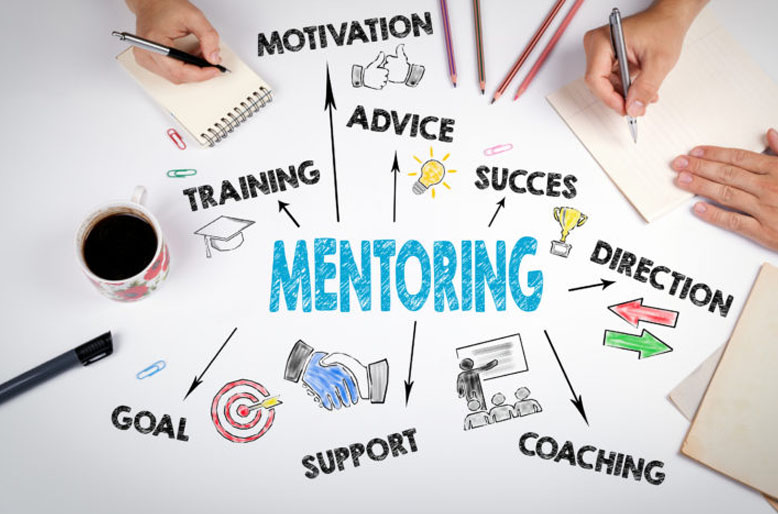What we can learn from changing the status quo
I’ve really enjoyed this series on mentorship. You might have noticed that in general, I prefer serial writing. It’s because while I love sharing my thoughts and insights, the exercise also gives me some clarity and room to deepen the discussion. One thing that’s become clear to me in the ongoing discussion about mentorship is that regardless of which role you assume, it’s fundamentally about learning. Mentors learn more about their past experiences when they impart the wisdom they’ve gathered over the years. Mentees learn how they can grow and improve in the most well-directed ways.
It led me to the question: When do we stop trying to grow and improve like a mentee? Your answer should be “never.” Yet, when we think about mentorship, it feels natural that we age out of the mentee mindset, that after an arbitrary level of experience, or an even more arbitrarily decided age, we transition from mentee to mentor full time.
While I fully support anyone assuming the role of mentor, we shouldn’t let inauthentic qualifiers like age or experience exclude us from learning and growing like a mentee. I was reading a piece by Marcel Schwantes about 6 Traits Smart People Have in Common when his advice on reverse mentors crystallized this notion for me.
The reality is, the world is changing faster now than ever before. Trends change weekly, the conversations we’re having change daily, and the skills and expertise we need to succeed are constantly evolving with the pace of technology and innovation. Fooling yourself into thinking that you can keep up with all of this on your own is a mark of ego.
Yet, there’s a generation who have grown up with this pace of change, who can transition their skills seamlessly with technology, and who speak the language of change better than more experienced generations can. It’s here that embracing a reverse mentor can make a big difference for you.
Navigating the unfamiliar dynamics of the reverse mentor relationship is certainly a challenge, but learning from a “Millennial” is in your best interest. Let’s talk about what the best reverse mentor relationships have in common.
In this context, you’re peers. The expectation of mutual respect should sustain no matter what, but approaching reverse mentorship wearing your “boss” hat is a mistake. Be humble and approach the relationship as a peer. You shouldn’t fear that it will detract from your role as a leader. Rather, seeking a reverse mentor will signal to your team how much you value learning and will set a great example. Additionally, if you do some pre-planning, you can confirm with your reverse mentor the exact dynamics of the relationship and keep your leadership intact while creating a healthy space for learning.
Accept that you don’t know what you don’t know. We stay as updated as we can, but if we think we know everything, what’s the point? It’s very likely that there are developments and technologies that we don’t even know we need to be aware of. A major part of what we can learn from a reverse mentor is emerging trends and how to track them. It’s critical that as leaders we remain aware, relevant and in tune to trends as they are emerging. A reverse mentor can position you for accelerated success when it comes to leveraging new technology, important demographic and market shifts and generational differences.
Understand it’s more than mechanical. Sure, there’s a lot to be gained from becoming more technologically savvy, but as millennials gain buying power and influence in the market, plugging into a more youthful perspective is important. Your worldview is likely very different than a Millennial’s, and appealing only to those people with a similar mindset to yours is a losing proposition. Gleaning a youthful perspective and opening yourself up to a dramatically different worldview will help you think about problems more effectively and devise more pointed solutions.
Mentorship has resulted in some of the most meaningful and impactful relationships in my life. I speak from experience when I say it’s a truly rewarding endeavor, but only with the right approach. I hope this discussion of reverse mentorship helps you abandon your misconceptions of what mentorship can be and how it has to look. We should always work to avoid limiting our learning opportunities. On that note, if you haven’t already, check out some of the mentors who shaped my life and career: https://www.coreykupfer.com/resources/
Corey Kupfer is an expert strategist, negotiator and dealmaker. He has more than 35 years of professional deal-making and negotiating experience. Corey is a successful entrepreneur, attorney, consultant, author and professional speaker who is passionate about deal-driven growth. He is also the creator and host of the DealQuest Podcast.
If you want to find out how deal-ready you are, take the Deal- Ready Assessment today!


